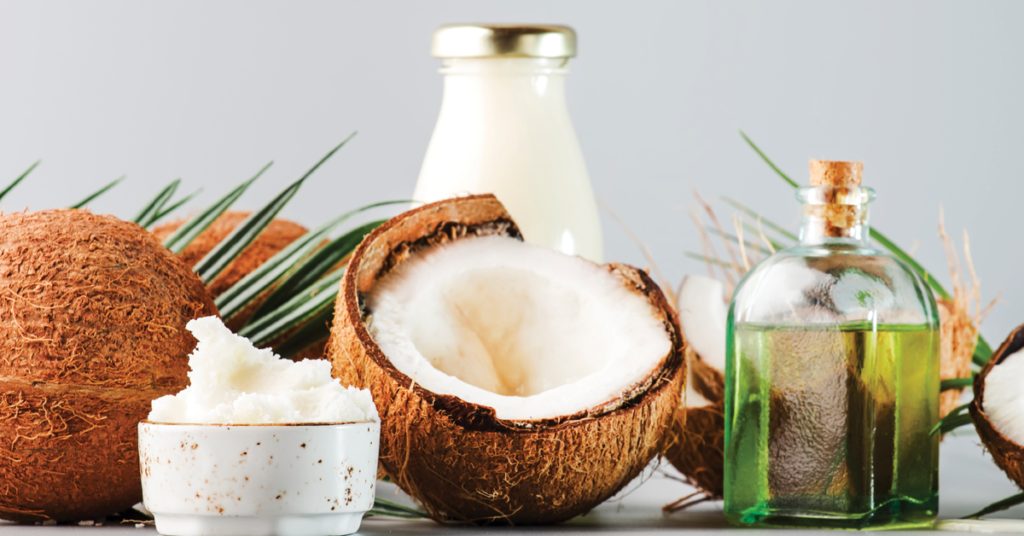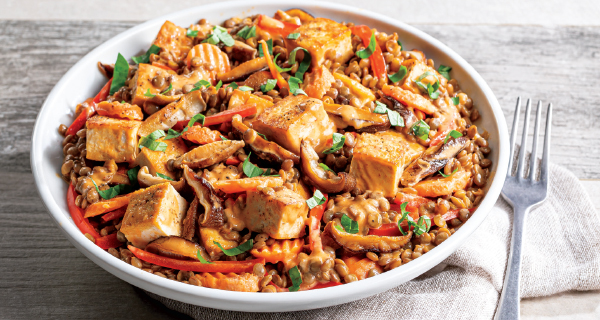
Mia Teal
Marketing Coordinator, Paid Media
Happy National Coconut Day! Yes, coconuts actually have their own day – June 26th. This tropical fruit may have you dreaming of being on an island, piña colada in hand, and not a care in the world. Whether you are reading this in your office building, by a pool, or a tropical beach if you are lucky, we have everything coconut-facts and tropical fruit recipes!
A question that many may wonder is whether a coconut is a fruit, nut, or seed. While the word “nut” is in “coconut,” that can be misleading. Coconuts are considered a fruit that have a hard shell enclosing the coconut seed.
Coconuts need high humidity and frequent irrigation to grow and survive which is why they flourish in tropical regions. Today, the Philippines are the largest producers of coconuts, with Indonesia and India closely behind. In the United States, coconuts grow in Hawaii and Florida. While the origin of coconuts is still up for debate, there have been fossil records of coconuts found in New Zealand dating back to 15 million years ago!
Another surprising fact about coconuts is that there are different varieties of them. A few of many are listed below!
- Malayan Yellow Dwarf Coconuts: These coconuts were first found in the Malaysian area between 1800 and 1900. When they are still immature, these fruits will appear a pale green but eventually turn a pale yellow to brown color.
- Fiji Dwarf Coconut: Popular in Florida, the Fiji Dwarf Coconut tree is known to grow copious amounts of coconuts while being remarkably short in size.
- VHC1 Coconut: This coconut tree is incredibly large and produces the fruit once every four years!
- Macapuno Coconut: The meat of this coconut is jelly-like due to natural mutations and are primarily grown throughout Asia. Interestingly enough, the Macapuno Coconut is considered a delicacy where they are grown in Asia and are much higher in price compared to other coconuts.
Coconut is widely used in baking and cooking, and coconut water has some great health benefits. Coconut flour is a great alternative for those that are gluten free and coconut milk works for those who are lactose intolerant. Additionally, many yogurts, creamers, and whipped cream are now made with coconut milk. When it comes to cooking, many people use coconut oil for cooking and frying, and there are even varieties of coconut spray to coat the bottom of your frying pan for a lower calorie option.
While coconut meat is relatively high in calories and fat and should be eaten in moderation, coconut water is great for the body. Many athletes drink coconut water for rehydration after an intense workout, but there is no evidence that supports the fact that coconut water is more hydrating than plain water. Also, coconut water has between 45 to 80 calories per eight ounces. Unsweetened and unflavored coconut water tends to have less calories than its counterparts.
Today, many beauty products are made from coconuts to moisturize the skin and hair. Who knew that these little fruits could have so many benefits other than just being delicious!
Interested in incorporating coconut in your cooking and baking? Check out some fun recipes below!
Coconut-Ginger Key Lime Bars: These cool, refreshing bars are the perfect way to celebrate National Coconut Week!
Tropical Daiquiri: Nothing screams “National Coconut Week” like this Tropical Daiquiri! Be sure to pick up PICS coconut milk. Honey, and ice at your local Price Chopper or Market 32.

Magic Brownie Bars: Name a better combo than coconut and chocolate. Well?
Instant Pot® Coconut-Curry Lentils with Tofu & Vegetables: This is the best time of the year for fresh produce! Mix your veggies in with tofu, coconut milk, lentils, and more for this hearty lunch or dinner.

Happy National Coconut Day!
